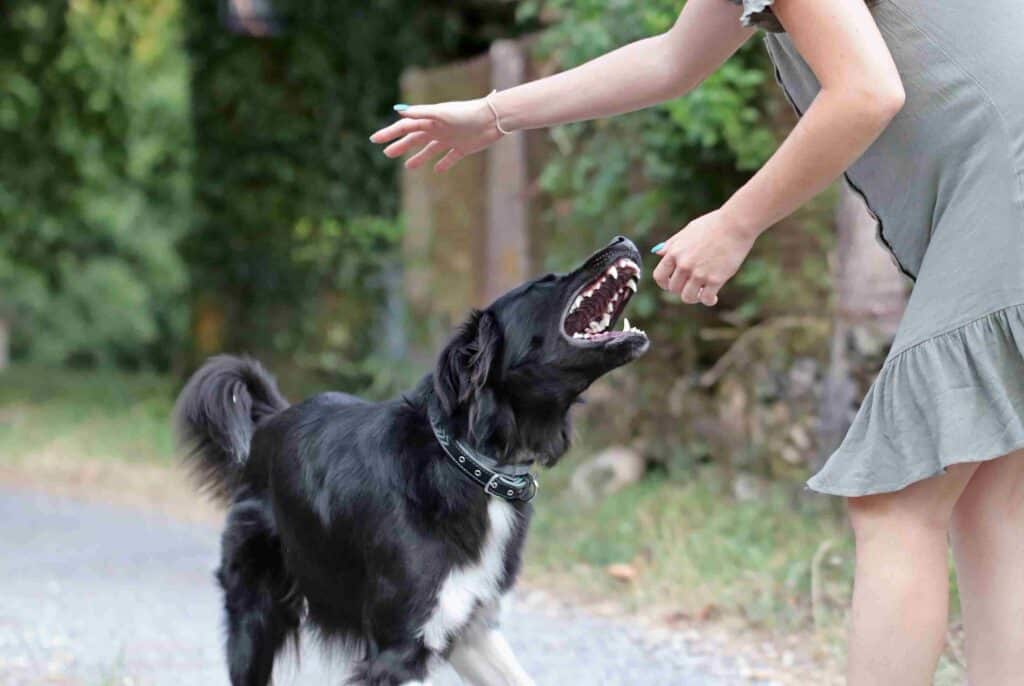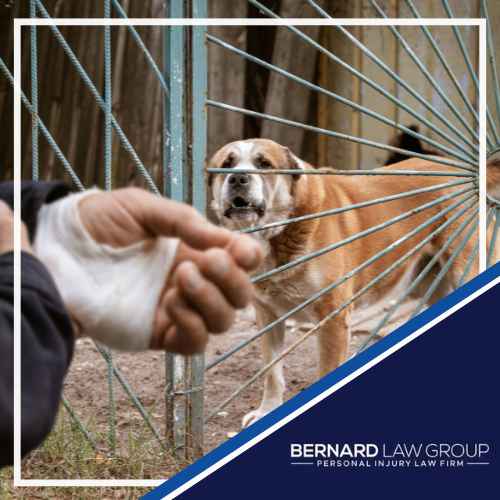While dogs are often hailed as “man’s best friend,” it’s important to remember that not all dog breeds are created equal. In fact, extensive research has found that some breeds are more dangerous than others.
There’s an ongoing debate about factors contributing to a dog’s aggression or dangerousness, such as nurture versus nature. However, it’s crucial to remember that all dogs, regardless of breed, have the potential to display aggressive behaviors. This underscores the importance of exercising caution around all dogs, not just those we’re unfamiliar with.
At Bernard Law Group, our dog bite accident attorneys in Seattle understand the impact a dog attack can have. Not only can it leave physical scars, but emotional and mental ones, too. Here, we have created a list of the 10 most dangerous dog breeds.
Methodology in Determining High-Risk Dog Breeds
In determining the 10 most dangerous dog breeds, we relied on comprehensive bite statistics, rigorous temperament assessments, and the seasoned opinions of veterinary behaviorists. However, it’s crucial to acknowledge that individual dogs within any breed can exhibit a wide range of behaviors.
This variability highlights the importance of not stigmatizing entire breeds but recognizing potential risks. In the unfortunate event of a dog bite accident, consulting with a knowledgeable dog bite accident attorney in Seattle can provide crucial guidance.
The 10 Most Dangerous Dog Breeds
Knowing what dog breeds are most likely to be aggressive or dangerous is an effective way to avoid an incident. Washington State laws usually hold the owner liable if you are injured or attacked by a dog. Our Seattle personal injury lawyer can evaluate your case to help determine the liable party and work to help you recover compensation.
The most dangerous dog breeds, based on studies and statistics, include the following:
Pit Bull
Pit Bulls often headline statistics related to dog bites (including the recent case of the four-year-old killed by a neighbor’s pit bull, who had never shown aggressive behavior, in North Alabama, which made national news), which has led to a perception of them as one of the most dangerous breeds.
This reputation stems from their strength, determination, and challenges in training and socialization. However, it’s crucial to note that individual temperament varies, and responsible ownership can mitigate risks.
Rottweiler
Rottweilers are known for their formidable strength and protective instincts, making them excellent guard dogs. However, these traits can also lead to aggressive behaviors if the dog feels its territory or family is threatened. Ensuring Rottweilers are well-socialized and properly trained from a young age is essential for preventing incidents.
German Shepherd
As a favored breed for police and military roles, German Shepherds are highly valued for their intelligence and versatility. However, their protective nature can manifest as aggression if not correctly managed through training and socialization. A well-trained German Shepherd is a loyal and safe companion.
Doberman Pinscher
Dobermans are intensely loyal to their owners and possess a strong protective instinct. While this makes them excellent guard dogs, it can also result in aggressive behavior toward strangers if they are not properly trained and socialized. Clear, consistent training is crucial for managing their protective instincts.
Bullmastiff
The Bullmastiff’s imposing build and natural guarding abilities make it a formidable breed. They are generally docile with family but can be aggressive when their guarding instincts are triggered. Early socialization and training are crucial to ensuring they can distinguish between normal and threatening situations.
Siberian Husky
Known for their striking appearance and high energy, Siberian Huskies also have a strong prey drive that can lead to unpredictable behavior. Their independence and intelligence require an owner who understands how to channel their energy positively through regular exercise and engagement.
Alaskan Malamute
Like Siberian Huskies in their need for exercise and stimulation, Alaskan Malamutes have strong personalities and require consistent leadership from their owners. Their strength and independence can be challenging to manage without proper training and socialization.
Wolf Hybrid
Wolf Hybrids carry wild genetics, contributing to their unpredictable behavior. The blend of wild and domestic traits can lead to challenges in training and socialization, making them a risky choice for inexperienced owners. Their unique needs and potential for unpredictable behavior necessitate a deep understanding of animal behavior.
Boxer
Boxers are energetic and powerful, with a playful nature that endears them to many. However, their strength and energy can manifest as aggression without proper training and socialization. Regular exercise and consistent training are vital for keeping Boxers well-behaved and safe around people.
Great Dane
The Great Dane’s size alone can make them risky if not properly handled. While they are generally gentle giants, their size can lead to unintentional harm if they are not trained to be mindful of their strength and size from a young age.
In all cases, understanding and meeting the needs of these breeds can significantly reduce the risk of aggressive behavior. For those affected by dog bites, seeking the expertise of a Seattle personal injury lawyer can provide the necessary legal guidance and support to navigate the aftermath of such incidents.
Understanding Aggression in Dogs
Several issues can cause aggression in dogs. These include the following:
Genetic Influences
Aggression in dogs can often be traced back to their genetics. Certain breeds have been selectively bred for traits that may include a predisposition towards guarding, herding, or even fighting.
These genetic factors can influence a dog’s propensity for aggressive behaviors. Recognizing these predispositions is crucial, especially when selecting a dog. This understanding helps in tailoring training and socialization efforts to mitigate potential risks.
Environmental Impact
The environment in which a dog is raised plays a significant role in its behavior. Dogs that experience neglect, abuse, or lack of social interaction may develop aggressive tendencies as a defense mechanism.
Conversely, a nurturing and stimulating environment can promote a well-adjusted temperament. This shows the importance of a dog’s surroundings and interactions from a young age and emphasizes the owner’s role in fostering a safe and positive environment.
The Crucial Role of Training and Socialization
Proper training and socialization are paramount in preventing aggression in dogs. Training that begins early and includes exposure to various people, animals, and situations can significantly reduce the likelihood of aggressive behavior. This process helps dogs learn appropriate responses and behaviors, reducing fear and anxiety in unfamiliar situations.
Safety Tips for Owners and the Public
Knowing how to stay safe and avoid incidents is imperative when it comes to dogs. Some tips are highlighted here.
For Dog Owners
Responsible dog ownership is critical in preventing aggressive behavior and ensuring public safety. Training should start early, focusing on obedience and social skills to help your dog navigate various situations calmly. Establishing a routine, including regular exercise, can also prevent boredom and frustration, often underlying causes of aggression.
For the Public
Understanding how to interact with dogs is essential for preventing aggression. Always ask an owner before approaching or petting a dog, and avoid direct eye contact, which dogs may perceive as a threat.
Teach children to be cautious and respectful around dogs, emphasizing the importance of not startling them. If confronted by an aggressive dog, remain calm, avoid running or screaming, and back away slowly, maintaining a non-threatening posture.
Legal Responsibilities of Dog Owners in Seattle
In Seattle, dog owners have legal obligations to ensure their pets do not threaten public safety. This includes securing dogs with appropriate restraints in public spaces and ensuring they are not left unsupervised where they can escape.
Owners are liable for any injuries their dogs cause, whether due to aggression or negligence in handling. Understanding these legal responsibilities is crucial, and a Seattle personal injury lawyer can provide insight into local laws and regulations.
Navigating the Complexities of Dog Ownership and Public Safety
Understanding the dynamics of dog behavior, the importance of responsible ownership, and the legal landscape in Seattle is crucial for fostering a safe environment for dogs and the community. Recognizing the potential for aggression and taking proactive steps through training, socialization, and adherence to local laws can significantly reduce risks.
For dog owners, embracing these responsibilities not only protects the public but also enhances the well-being of their pets, ensuring they lead happy, well-adjusted lives.
For individuals affected by dog bite incidents, it’s important to know that support is available. Consulting with a dog bite accident attorney in Seattle can clarify legal rights and the steps necessary to navigate the aftermath of such incidents.




